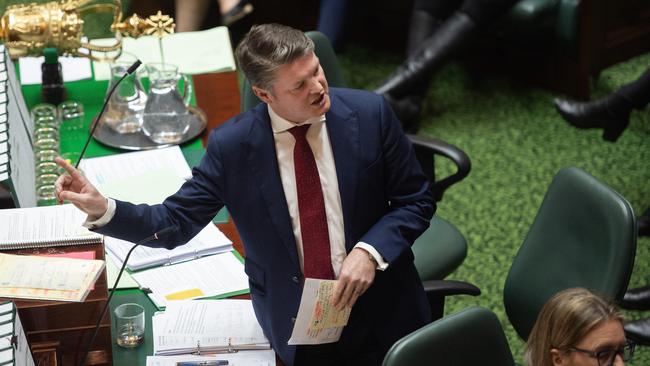Phonics at core of reading revolution our kids deserve

How best to teach kids to read is a worldwide conversation – underscored recently in Sold a Story: How Teaching Kids to Read Went So Wrong, by award-winning American Public Media investigative journalist Emily Hanford. The reading wars are not quite over, but they should be.
Earlier this year, I joined more than 350 teachers and principals to hear from a panel of experts on evidence-based reading instruction. Hundreds of teachers from all over our state giving up their weekends proves the profession’s commitment to improving their students’ reading proficiency.
But teachers, principals and parents cannot do it alone. This is why the Allan Labor government is implementing high-quality phonics and explicit teaching in every classroom in Victoria.
Systematic synthetic phonics is a structured approach explicitly teaching the relationship between sounds and letters to read words. We’ve trialled this approach over the past couple of years at schools such as St Mary’s Primary in Myrtleford, in the northeast, and Churchill Primary in the Latrobe Valley – and they’ve seen remarkable turnarounds in academic achievement and student wellbeing, having switched to the systematic synthetic phonics technique.
Changing a single school is one thing; changing an entire system is a different challenge. But it is a challenge I am ready for. Three landmark national reports on reading, from the United States, the United Kingdom and Australia, have shown the developing evidence that systematic and explicit phonics is the most effective initial method of teaching children to read.
Adding to that, Australia’s independent evidence education body the Australian Education Research Organisation’s How Students Learn Best: An Overview of the Evidence released in 2023, as well as the Teacher Expert Panel’s Strong Beginnings report and the Grattan Institute’s The Reading Guarantee: How to give every child the best chance of success, from earlier this year, each demonstrate that the call to action is now overwhelming for explicit instruction and the teaching of phonics-based decoding skills in the foundation years.
The science is now settled, and the evidence is in – and that’s what we’re listening to.

From 2025, all Victorian primary schools, from prep to year 2, will use a systematic synthetic phonics approach as part of their reading programs – with at least 25 minutes of daily explicit phonics teaching.
Studies show that children learning by the explicit and systematic phonics method are up to two years ahead of their peers. Even more so, just two months of teaching phonics has been shown to put students ahead compared to all other methods.
We’ll put explicit teaching at the core of Victorian teaching and learning because we know it is best for our students.
Victoria is home to the most talented teachers in the nation, and we are backing them with the resources they need to do an excellent job. By mandating explicit instruction in every classroom, I want to give teachers greater confidence about which practices to select, when to select them and why. Teachers will be supported with high-quality lesson plans to ensure they have best-practice materials on hand to allow them to focus on their teaching and their students.
But don’t take explicit teaching to mean strict and simple methods. It’s quite the opposite – sophisticated, inclusive, highly interactive, fast-paced techniques and interventions.
Explicit instruction and systematic phonics are the most effective ways to teach children to read, and schools need to do what’s best for children, regardless of postcode, languages spoken at home, or neurodiversity. Teachers, principals and parents work hard to improve their children’s reading. As Minister for Education, I stand with them.
Getting a world-class public education in Victoria will always be free, and these reforms will ensure every student has a solid foundation and understanding of literacy as they progress through their education.
Ben Carroll is Victoria’s Deputy Premier and the state’s Minister for Education. He will be addressing the Australian School Improvement Summit dinner hosted by Knowledge Society on October 17 in Melbourne.





When I became Victoria’s Education Minister 12 months ago, little did I know I’d be stepping into a half century-long policy debate about how we teach our kids the basics of reading.